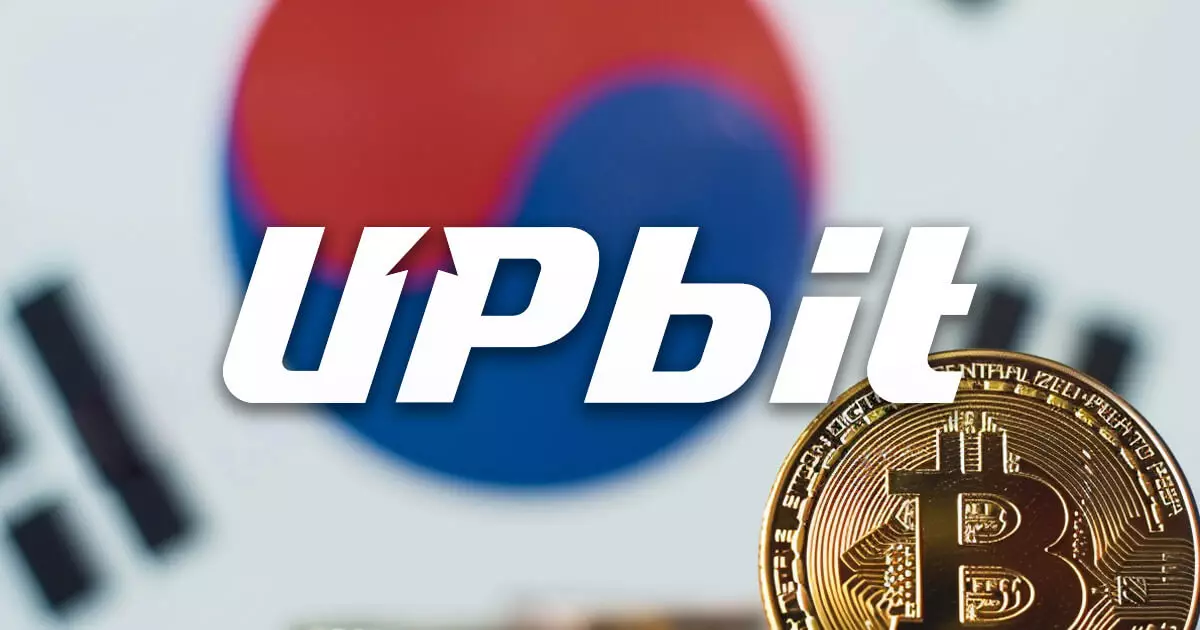South Korea’s Financial Services Commission (FSC) is taking significant steps toward scrutinizing Upbit, the preeminent cryptocurrency exchange in the nation. The inquiry is prompted by growing concerns over Upbit’s influence within the crypto market and its potential risks to the financial system. FSC Chairman Kim Byung-hwan has indicated that this investigation will focus on the dependency that the virtual asset market has developed on Upbit, which commands a substantial portion of the trading activity in South Korea.
This action underscores a heightened sensitivity to market monopolies, particularly in the rapidly evolving sector of digital currencies. Lawmakers, notably Lee Kang-il, have highlighted the troubling ties between Upbit and K Bank, which is notable for being South Korea’s first online-only bank. This relationship raises red flags regarding market fairness and the financial system’s stability.
The financial ecosystem in South Korea exemplifies a precarious balance where the actions of one entity can significantly impact others. For example, reports show that Upbit’s deposits constitute nearly 20% of K Bank’s total deposits, raising concerns about the potential repercussions if operations at Upbit were disrupted. Such a scenario could induce a bank run, showcasing the intricate interdependencies that define the digital finance landscape.
Moreover, Lee Kang-il has drawn attention to K Bank’s offering of attractive interest rates on deposits originating from Upbit users—rates that some analysts deem unsustainable. If these high-interest practices prove detrimental to K Bank’s profitability, it could pose a larger threat to the financial system. The situation raises fundamental questions about the viability of K Bank’s business model, especially in the context of how tightly woven it is with the performance and stability of Upbit.
The FSC’s impending investigation signifies a pivotal moment in digital asset regulation in South Korea. The regulatory body intends to scrutinize K Bank’s forthcoming IPO plans, which are significant on multiple fronts. With a potential raise of 984 billion won (approximately $731.64 million), this IPO may become one of the largest in 2024 if successful. However, the impending investigation may dampen investor enthusiasm, reflecting the intricate interplay between regulatory scrutiny and market momentum.
Additionally, the Virtual Asset Committee in South Korea is set to evaluate not just the situation surrounding Upbit but also broader implications for the digital assets sector. The committee’s oversight capabilities will play a critical role in shaping the future regulatory framework for cryptocurrencies, especially in balancing innovation with adequate oversight.
Interestingly, this investigation unfolds against the backdrop of a recent memorandum of understanding (MOU) between Dunamu (Upbit’s parent company), K Bank, and BC Card. Their agreement aims to create a collaborative model for digital financial services, leveraging each entity’s technological strengths. This partnership signifies a forward-looking approach to building a robust digital finance ecosystem in South Korea. However, the increasing regulatory scrutiny may influence future collaborations and strategies within the sector.
The scrutiny of Upbit by South Korean regulators highlights a critical juncture in the evolution of the cryptocurrency landscape in the country. As authorities work to maintain financial stability amid growing digital asset popularity, the investigation could set important precedents for how regulators address the intertwined nature of fintech and traditional banking systems.

